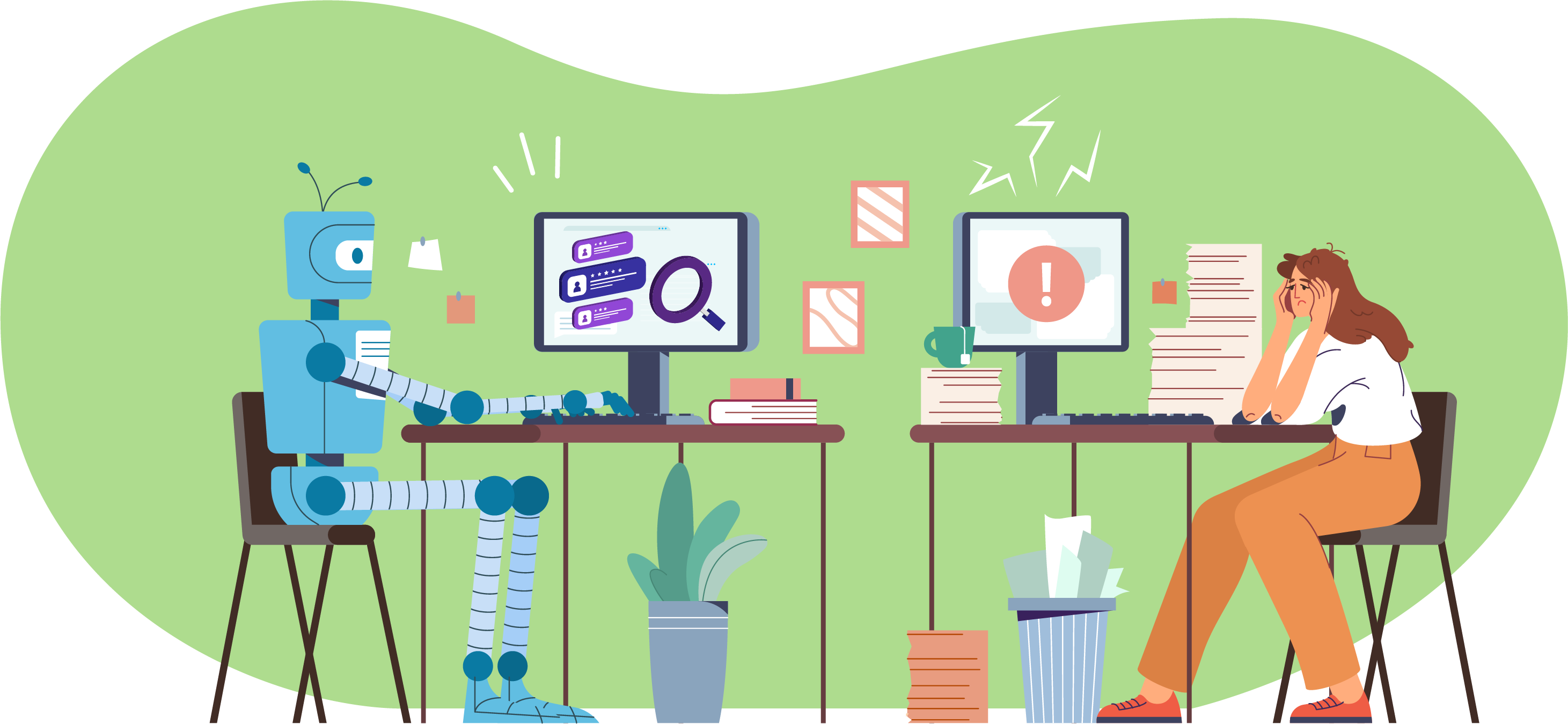The Future of Recruitment: How Artificial Intelligence is Transforming Hiring

Recruitment has been an essential aspect of human resource management for centuries. In recent years, the recruitment process has undergone significant changes, thanks to the rise of technology and the emergence of artificial intelligence . AI has enabled recruiters to automate several processes, making hiring faster, more efficient, and more effective. In this blog post, we will explore the future of recruitment and how AI is transforming the hiring process.
The Role of Artificial Intelligence in Diversifying Talent Acquisition
AI-powered recruitment tools have revolutionized the way companies attract, engage, and hire candidates. These tools leverage machine learning algorithms to analyze vast amounts of candidate data and provide insights that would otherwise be impossible to obtain. AI tools can help recruiters identify the best candidates for the job, predict their future job performance, and provide a seamless and personalized candidate experience. The application of AI in recruitment is transforming the hiring process, making it faster, more efficient, and more effective than ever before.
How Artificial Intelligence is Transforming Recruitment
Automated Resume Screening
The resume review process can be one of the most tedious and time-consuming aspects of recruitment. However, with the assistance of AI-powered software, recruiters can now automate the process, saving valuable time and resources. By utilizing machine learning algorithms, AI tools can scan resumes for relevant keywords and phrases, as well as identify potential red flags like gaps in employment. This automated screening process helps recruiters to focus their time and energy on the most qualified candidates, streamlining the recruitment process and improving overall efficiency.
Chatbots for Candidate Engagement
Chatbots are AI-powered tools that can communicate with candidates via messaging apps, social media, or company websites. They can answer frequently asked questions, schedule interviews, and provide feedback to candidates. Chatbots can also collect candidate data, such as job preferences and skills, and analyze it to identify patterns. Chatbots can enhance candidate engagement, providing them with a seamless and personalized experience.
Predictive Analytics for Candidate Selection
AI-powered predictive analytics can analyze candidate data, such as resumes, social media profiles, and online activity, to predict their job performance. It can identify the candidate's strengths, weaknesses, and potential cultural fit within the company. Predictive analytics can also highlight potential risks, such as high turnover rates or low employee engagement. This data can help recruiters make informed decisions and hire candidates who are more likely to succeed in the job.
Video Interviews
AI-powered video interviews are becoming increasingly popular in the recruitment process. Video interviews can save recruiters time and money by allowing them to interview candidates remotely. Video interviews can also provide more insight into the candidate's communication skills, body language, and personality. AI-powered video interviews can analyze the candidate's facial expressions, tone of voice, and language patterns to identify potential red flags or positive traits.
Diversity and Inclusion
AI-powered tools can help recruiters overcome unconscious bias and promote diversity and inclusion in the recruitment process. AI can analyze job descriptions for gender-coded language and provide suggestions for neutral language. It can also anonymize resumes to eliminate information that could lead to bias, such as the candidate's name, gender, or ethnicity. AI-powered tools can help recruiters focus on the candidate's qualifications and skills, promoting a fair and equitable hiring process.
The Benefits of Artificial Intelligence in Recruitment
Speed and Efficiency
AI can automate several tasks in the recruitment process, such as resume screening and scheduling interviews. This saves recruiters time and allows them to focus on the most qualified candidates. AI-powered tools can also provide real-time feedback and reduce the time it takes to make hiring decisions.
Cost Savings
AI can save recruiters money by reducing the need for manual labor and minimizing errors.
It can also help reduce turnover rates and improve employee retention, which can save companies money spent on advertising vacancies, temporary staff, and lost productivity due to a lack of resources. AI can also reduce the time spent on repetitive and tedious tasks, such as resume screening and candidate outreach, allowing recruiters to focus on more critical tasks that require a human touch
Reduced Bias
The ability of AI in recruitment to decrease bias in the hiring process is one of the most significant advantage. Age, gender, and race-related demographic characteristics can be trained out of AI algorithms such that they only consider education and experience. This could aid businesses in creating a workforce that is more inclusive and diversified.
Improved Candidate Experience
Personalized recommendations and real-time feedback based on an applicant's qualifications and experience can assist AI improve the candidate experience. Candidates' perceptions of the organisation will likely increase as a result, increasing their level of engagement in the hiring process.
Conclusion
In conclusion, artificial intelligence is transforming the recruitment industry and is poised to become an integral part of the hiring process. By leveraging AI-powered tools such as chatbots, applicant tracking systems, and predictive analytics, recruiters can streamline their workflows, reduce bias, and make data-driven hiring decisions. While AI cannot replace the human touch, it can complement human efforts and enable recruiters to focus on the more strategic aspects of their job. As technology continues to evolve, it will be interesting to see how AI shapes the future of recruitment and helps organizations find the best talent for their needs.